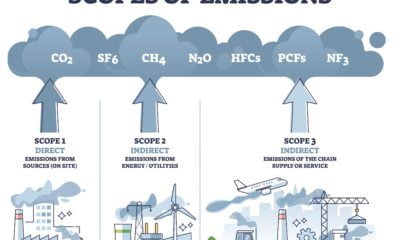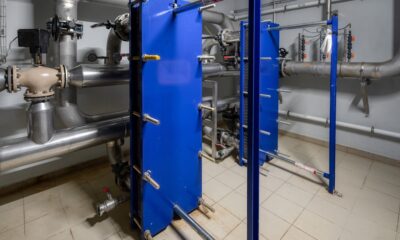

Economy
Education is the Seed for effective energy transformation
Education in the UK is in a prime position to be the leader in transformation of precious public sector energy resource management through Seed.
Seed – or Sustainable Efficient Energy Direction – encapsulates just one group of ideas that SaveMoneyCutCarbon is shaping to create effective strategies for schools, academies, further education colleges and universities in Britain.
The working principle of Seed is to ensure rapid, measurable and manageable solutions to institutions of all sizes that save money through vastly reduced energy bills, shrinking carbon footprint and reinforcing social responsibility credentials.
We use energy in the widest sense and within this we also capture ideas around most efficient water management, which ensures that pumping or heating costs and carbon footprint are minimised at all times. All this feeds into the greening of education.
Every education institution is keenly aware of the capital drain caused by rising energy prices, which have doubled in past decade and are predicted to double again over next ten years. For many institutions, there are also indirect costs of the carbon reduction commitment (CRC) energy efficiency scheme.
Heating and lighting focus
Heating and lighting are the biggest energy costs for the sector – up to 60% of the annual total. The good news is that investment in energy-saving lighting, efficient water management and better heating management is repaid rapidly, with savings then continuing over many years, freeing up capital for other much-needed projects.
Sustainability strategies that embrace LED lighting, smarter lighting controls, intelligent heating controls, maximum boiler efficiency and smart pumps with variable speed drives together with water-saving solutions are essential throughout the education sector now.
Deployment of these highly effective, simple consumption cutting solutions across all areas, from teaching and study areas, offices, store facilities, accommodation, washing facilities and kitchens, will rapidly deliver savings on energy and water bills while radically reducing carbon footprint.
Solutions of the right quality and ‘best fit’ would also deliver substantial economies over many years through greatly reduced maintenance costs.
Clearly, there is little point in implementing any sustainability plan without the inclusion of effective monitoring, which goes beyond meter and bill watching. Working with a trusted energy-efficiency partner should provide a granular level of detail about energy-saving projects, both in terms of pre-installation surveys and post-installation measurements, which can also support any case for Climate Change Levy exemption.
Reduce energy costs
As a Carbon Trust accredited supplier, we know that our solutions can contribute to a substantial reduction in UK schools energy costs. The trust itself estimates that around £44m annually can be slashed from energy bills, with concomitant reduction in carbon emissions of 625,000 tonnes.
Our experience in a wide range of comparative sectors also demonstrates that these savings can be achieved without negative effects on the teaching environment. Actually, with the right strategic partner and processes, the sustainable solutions deployed can have dramatic and positive cultural effects in the organisation.
We have seen how implementation of simple solutions in energy-intensive organisations can deliver savings of more than 40 % with carbon emissions reductions of 50 % and more. As the Carbon Trust advises, annual energy costs for the further and higher education (FHE) sector are around £400m with CO2 emissions of around 3 million tonnes.
Without urgent effective and sustainable action, these figures will only continue to rise as sector growth continues – student numbers have increased increasing by a factor of five over the past 30 years.
Financial pressures will continue to be a pressing challenge for the foreseeable future and every education institution has to deliver the best learning facilities on a limited budget. A comprehensive, astute assessment of energy use, allied to an agile, effective consumption reduction programme will free funds for curricular resources.
Mark Sait is managing director of energy-efficiency specialists SaveMoneyCutCarbon.com.
Photo: spydermurp via freeimages
Further reading:
7,000 businesses compelled to report energy use and potential energy saving strategies
Power shortage warnings show need for effective national energy reduction
Pressure on energy bills rises as national renewable power policy gets a makeover
The real green deal: bringing energy, water and waste under control
Why energy saving, cutting bills and reducing carbon footprint will stay centre stage


 Environment12 months ago
Environment12 months agoAre Polymer Banknotes: an Eco-Friendly Trend or a Groundswell?

 Features11 months ago
Features11 months agoEco-Friendly Cryptocurrencies: Sustainable Investment Choices

 Features12 months ago
Features12 months agoEco-Friendly Crypto Traders Must Find the Right Exchange

 Energy11 months ago
Energy11 months agoThe Growing Role of Solar Panels in Ireland’s Energy Future




























